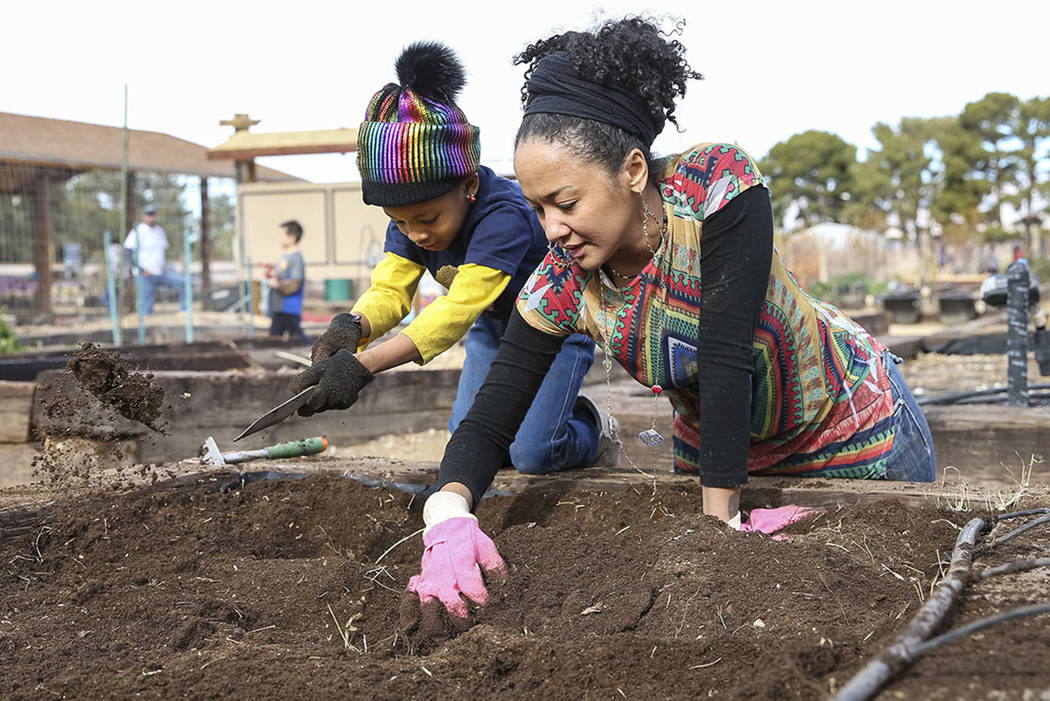Nevada Embraces Sustainability and Community Growth Through New Legislation
Nevada is taking bold steps toward sustainability and community resilience with the introduction of new legislation aimed at supporting and expanding community gardens throughout the state. Recognizing the critical roles these gardens play in fostering environmental awareness, food security, and social cohesion, the state has allocated over $165,000 for the 2025–2027 biennium to sustain and amplify these vital green spaces. This strategic investment signifies a forward-thinking commitment to empowering urban and rural communities alike.
Community gardens represent much more than plots of land to grow fruits, vegetables, and flowers. They are dynamic spaces where individuals can connect with one another, deepen their understanding of sustainable practices, and share a common purpose. Recognizing this, Nevada’s new legislation seeks to elevate these efforts, ensuring that community gardens become accessible to more residents and sustainable for future generations.
A Greater Impact Through Expanded Community Access
The financial commitment over the next two years aims to broaden the reach of existing gardening programs, opening these spaces to more neighborhoods and diverse demographics across the state. With this funding, Nevada hopes to not only sustain existing gardens but also create opportunities for new ones to flourish in areas that need them most. For communities with limited access to fresh produce, these gardens offer a pathway to food security and healthier lifestyles. By making community gardens more accessible, Nevada is also fostering a culture of hands-on learning about sustainability and environmental stewardship.
A shining example of these efforts is the Provident Community Garden in Las Vegas, which highlights the transformative power of collaborative green spaces. More than just a place to grow crops, it has become a hub for social interaction, shared purpose, and environmental education. It demonstrates how community-driven initiatives can build stronger bonds, improve self-reliance, and ignite a shared passion for sustainable living. Through this new legislation, initiatives like the Provident Community Garden may inspire similar successes across the state.
Tackling Broader Challenges
Nevada’s focus on community gardens goes beyond beautifying neighborhoods—it tackles far-reaching issues such as food insecurity, environmental degradation, and even climate change. Research from other states confirms the many benefits of community gardens: they provide residents with access to fresh, nutrient-rich produce, reduce reliance on long-distance food systems, and empower individuals with knowledge about soil health, water conservation, and sustainable gardening techniques.
Community gardens also serve as a critical strategy in urban planning. They reimagine vacant or underutilized land, turning it into spaces of community interaction and growth. In bustling urban centers like Las Vegas, gardens create islands of greenery that reduce urban heat, improve air quality, and provide participants with therapeutic benefits. Whether easing stress, fostering creative outlets, or bringing neighbors together, these spaces act as sanctuaries in otherwise hectic environments. The benefits ripple throughout entire communities, resulting in healthier and more vibrant neighborhoods.
Planting the Seeds for a Sustainable Future
This legislation is not just about funding; it reflects a broader vision for Nevada’s future. These gardens signify resilience at its finest, creating opportunities for individuals to actively engage in sustainable initiatives that directly benefit their surroundings. By teaching individuals about natural cycles, resource conservation, and eco-friendly practices, community gardens help build a prepared, conscientious citizenry. In this way, Nevada’s support for these initiatives contributes to broader efforts to combat climate change while simultaneously improving quality of life.
Equally important is the social fabric that community gardens help weave. By inviting collaboration between neighbors, volunteers, nonprofits, and local leaders, the initiative strengthens community bonds and establishes a culture of mutual support. These gardens break down barriers between strangers, fostering not only connections but also a collective sense of purpose.
Overcoming Challenges Ahead
While the legislation and funding provide a strong starting point, the success of Nevada’s community garden initiative will hinge on community engagement. To sustain and grow these green spaces, state officials, local leaders, and nonprofits must work together to allocate resources strategically and involve residents in every stage of the process, from planning and planting to managing and harvesting.
Volunteers and community members will play a crucial role in maintaining these spaces. In turn, local policymakers must ensure that gardens are established in areas of the greatest need, especially in food deserts and more densely populated cities. The initial biennium budget offers a promising beginning, but long-term success will depend on maintaining momentum, cultivating partnerships, and demonstrating the transformative impact these gardens can have on Nevada’s people and environment.
An Invitation to Grow Together
For Nevadans, this initiative is an open invitation to get their hands dirty—literally. Whether you’re a seasoned gardener or an absolute beginner, community gardens provide a space to learn, cultivate, and connect with others who share a common vision. Beyond growing fruits and vegetables, these spaces nurture social harmony, environmental responsibility, and personal growth.
With the seeds of opportunity planted, the future of Nevada’s community gardens looks bright. This legislation represents more than an investment in physical spaces; it is a commitment to fostering resilience, sustainability, and unity across the state. In nurturing these green havens, Nevada is cultivating a culture of hope, collaboration, and environmental consciousness that will shape its communities for years to come.
